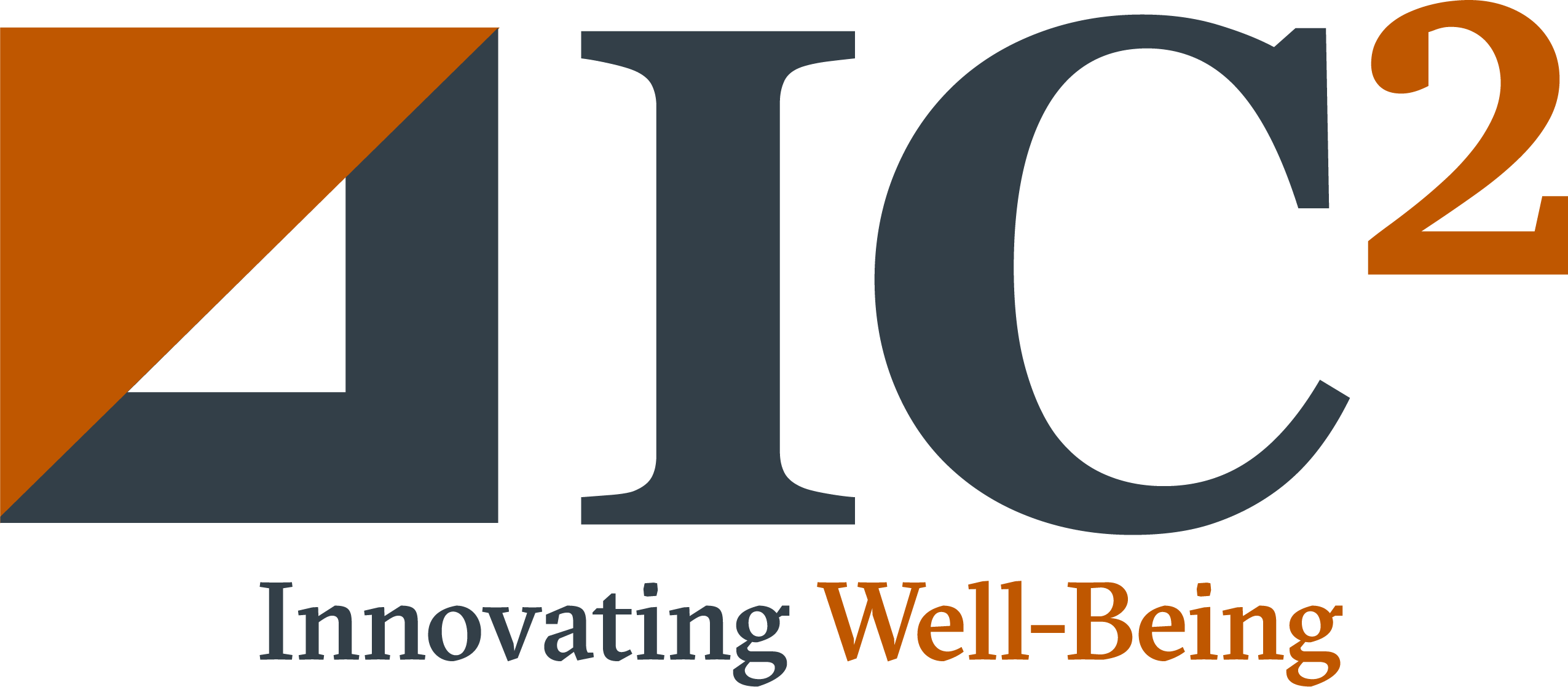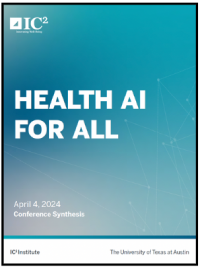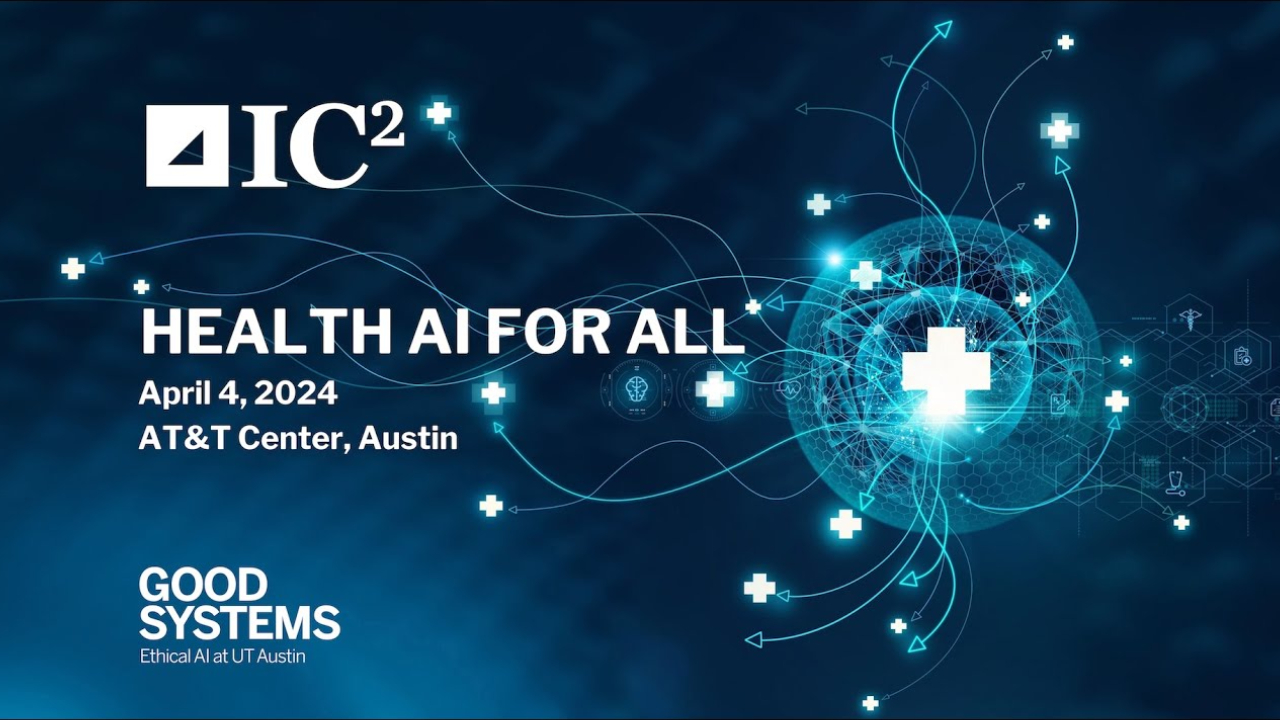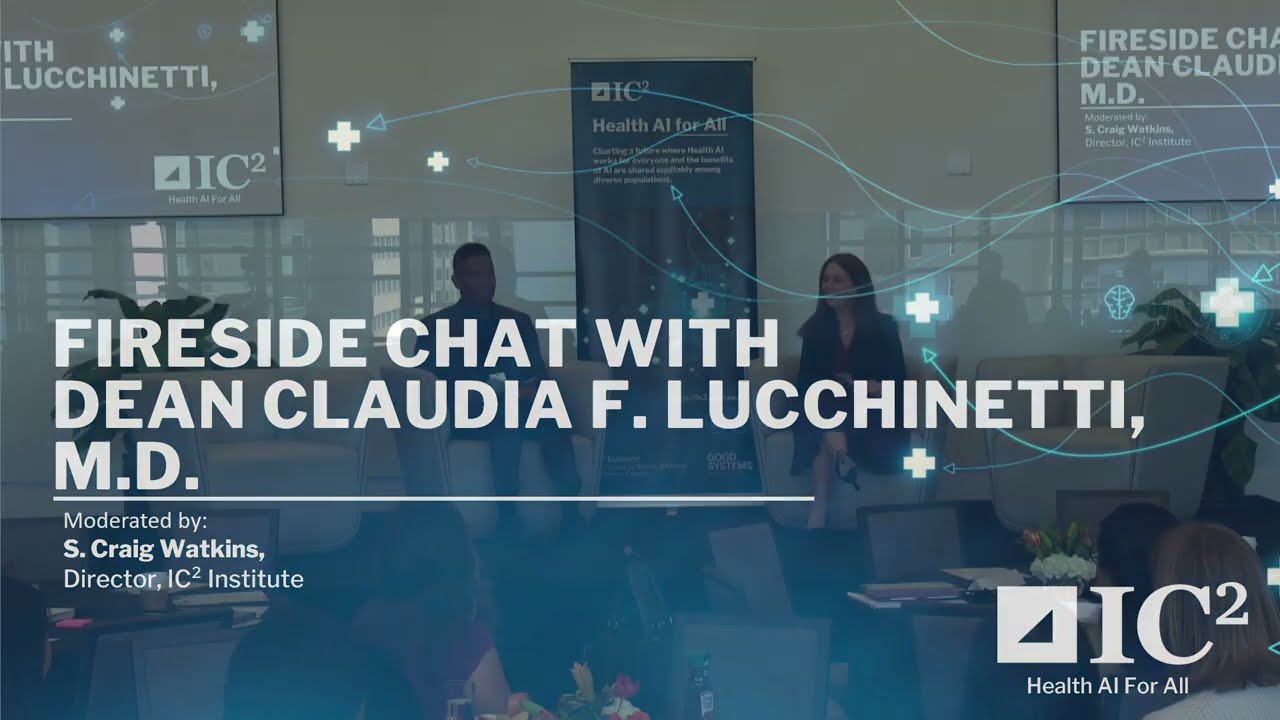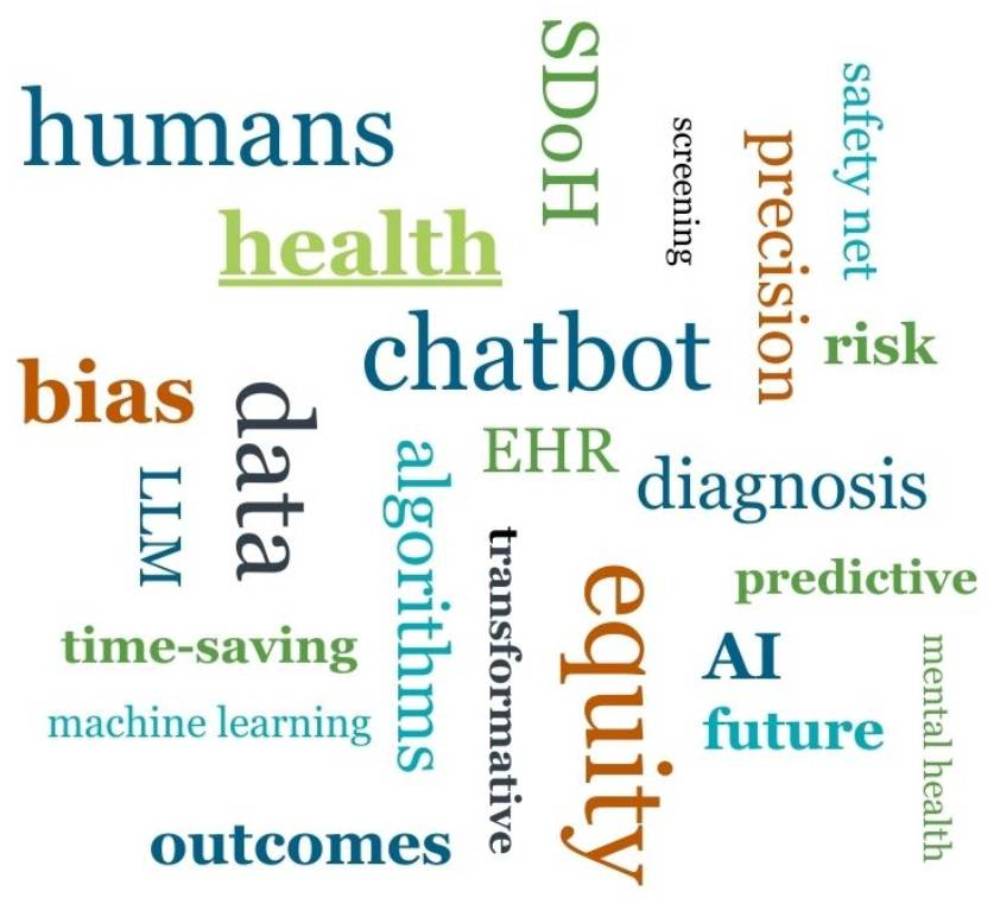Event Highlights
Overview
Background
As AI systems like Chat GPT and Generative AI become increasingly integrated into our lives, they wield significant influence across various domains. From entertainment and the arts to the routine products we use in our daily lives, AI’s presence is increasingly evident. However, the impact of AI is most profoundly felt in high-stakes domains like health care, an arena with life-and-death consequences and profound implications for well-being.
AI’s role in health care is no longer a matter of science fiction. Practitioners in various fields — from radiology to mental health — are already integrating AI into their work. The promises of Health Artificial Intelligence (Health AI) are many and include advances in predictive, prevention-oriented, and personalized care. Despite its potential, however, the inclusive design and deployment of AI-based health care remains a challenge, and a critical question remains: How do we design Health AI to ensure that the benefits of precision health and augmented clinical decision-making are accessible to all segments of society?
Health AI for All: Conference Goals
The AI Health for All conference will explore the both the opportunities and challenges of AI in health care, focusing on equitable and ethical design and deployment. Researchers, health practitioners, and community advocates will come together to consider the social, technical, clinical, ethical, and policy implications of deploying AI in historically underserved communities, both rural and urban. Through a series of presentations and discussions, conference-goers will chart a future where Health AI works for all, where biases are eliminated, and the benefits of AI are shared equitably among diverse populations.
Panels
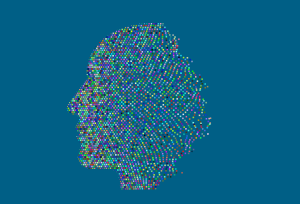
Predictive Signals for Behavioral Health

Can AI Mitigate the Maternal Health Crisis?

Designing an Inclusive Health AI for All
Speakers
Schedule
Venue
When and Where
Date and Time
Thursday, 4 APR 2024
8:15 am – 4:45 pm CST
Location
Guadalupe Room, Rowling Hall,
AT&T Hotel and Conference Center,
1900 University Ave, Austin, TX 78705
Parking Instructions
Parking is available on a first come basis in Rowling Hall Garage. The Garage entrance is located on the south side of 20th Street, between Whitis and Guadalupe, UNDER the building. Pull a ticket and park on levels B5 or B6, then take elevator marked Zlotnik Ballroom to 4th floor for the Guadalupe Room (4.208). ATT Hotel and Conference Center also has garage parking available on a first come basis. The entrance to the garage is located on the south side of 20th Street, between University Avenue and Whitis Street, UNDER the building. Pull a ticket and park on any level, then take the elevators marked Conference Center to M2, walk across the Plaza to Rowling Hall (using the south entrance by Moontower Café). Parking for both garages is not guaranteed. (Alternative parking may be available at the Brazos Garage, 210 E. Martin Luther King Blvd.)
Contact us
Have questions about the conference?
For conference-related queries, reach out to Adriann Oommen, our dedicated conference coordinator, at conference@ic2.utexas.edu. We value your inquiries and assure you a swift and helpful response.
Sponsor
Thank you to our sponsor, Good Systems.


